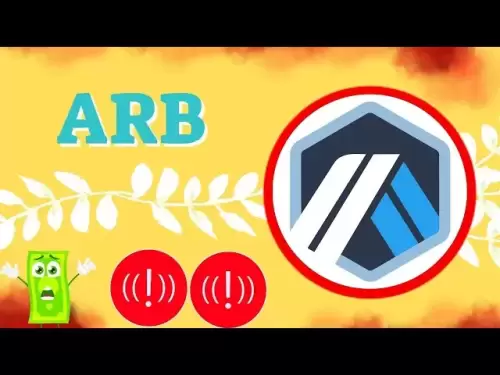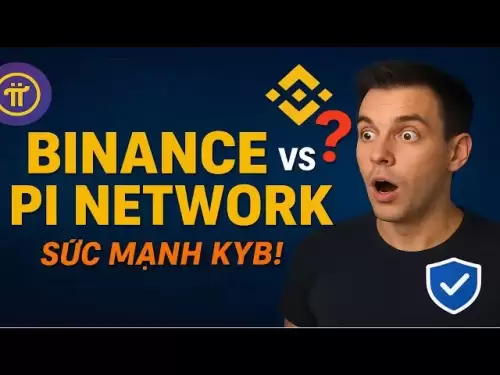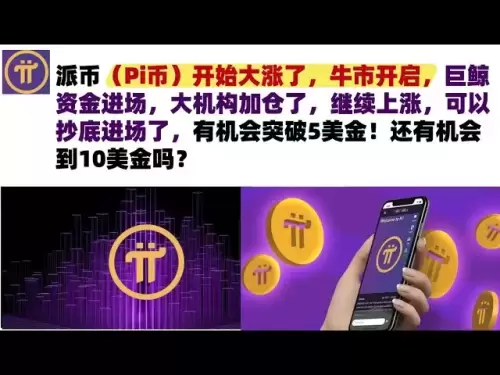-
 Bitcoin
Bitcoin $116900
0.00% -
 Ethereum
Ethereum $4280
5.48% -
 XRP
XRP $3.265
-1.45% -
 Tether USDt
Tether USDt $1.000
-0.01% -
 BNB
BNB $807.0
1.41% -
 Solana
Solana $183.1
2.93% -
 USDC
USDC $0.9999
0.00% -
 Dogecoin
Dogecoin $0.2440
6.50% -
 TRON
TRON $0.3357
-0.88% -
 Cardano
Cardano $0.8178
2.63% -
 Hyperliquid
Hyperliquid $44.13
7.45% -
 Chainlink
Chainlink $21.39
9.09% -
 Stellar
Stellar $0.4524
-0.84% -
 Sui
Sui $3.957
2.13% -
 Bitcoin Cash
Bitcoin Cash $572.7
-2.54% -
 Hedera
Hedera $0.2671
1.54% -
 Avalanche
Avalanche $24.77
4.17% -
 Ethena USDe
Ethena USDe $1.001
0.02% -
 Litecoin
Litecoin $122.3
-1.94% -
 Toncoin
Toncoin $3.432
2.26% -
 UNUS SED LEO
UNUS SED LEO $9.007
0.49% -
 Shiba Inu
Shiba Inu $0.00001396
5.26% -
 Uniswap
Uniswap $11.09
1.64% -
 Polkadot
Polkadot $4.155
4.57% -
 Dai
Dai $1.000
0.00% -
 Pepe
Pepe $0.00001253
5.11% -
 Cronos
Cronos $0.1588
2.67% -
 Bitget Token
Bitget Token $4.512
0.05% -
 Monero
Monero $275.0
0.64% -
 Ethena
Ethena $0.7527
15.10%
Who are the competitors of ADA?
Cardano (ADA) competes with Ethereum, Solana, Avalanche, and other layer-1 blockchains and DeFi platforms, facing a dynamic landscape of smart contract platforms and alternative crypto projects vying for market share.
Mar 03, 2025 at 11:12 am
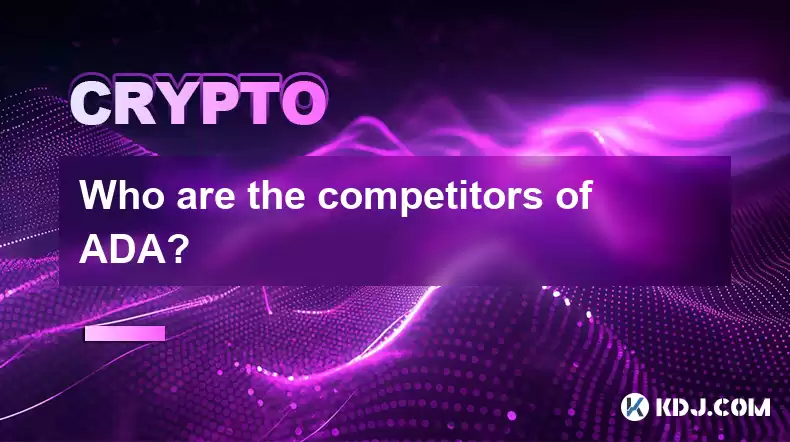
Key Points:
- Cardano (ADA) faces competition from a range of cryptocurrencies vying for similar market positions.
- Competitors can be categorized by their focus: smart contract platforms, layer-1 blockchains, and decentralized finance (DeFi) ecosystems.
- Direct competition exists with established platforms like Ethereum and newer entrants like Solana and Avalanche.
- Indirect competition comes from projects offering alternative solutions within the broader crypto space.
- The competitive landscape is dynamic, with new projects constantly emerging and existing ones evolving.
Who are the Competitors of ADA?
Cardano (ADA), a blockchain platform aiming for scalability and sustainability, faces a crowded field of competitors. Understanding these rivals requires looking at various categories and their specific strengths. The competitive landscape is constantly shifting, with new projects launching and established players innovating.
Smart Contract Platform Competitors:
The most direct competitors are other smart contract platforms. Ethereum (ETH), the pioneer in this space, remains the dominant player, boasting a vast developer ecosystem and a mature DeFi landscape. However, its scalability limitations have spurred the development of alternatives. Solana (SOL), known for its high transaction speeds, is a significant competitor, attracting developers with its performance. Avalanche (AVAX) offers another high-throughput solution, emphasizing its interoperability and subnets. Polkadot (DOT) and Cosmos (ATOM) also present themselves as competitors, focusing on inter-blockchain communication and scalability through a network of interconnected blockchains. These platforms compete with Cardano by offering similar functionalities, targeting developers and users seeking efficient smart contract execution.
Layer-1 Blockchain Competitors:
Beyond smart contract platforms, Cardano competes with other layer-1 blockchains. These are foundational blockchains that form the base layer for various applications. Competitors in this category often emphasize different aspects, such as security, scalability, or transaction speed. For example, Algorand (ALGO) prioritizes its pure proof-of-stake consensus mechanism for energy efficiency and security. Cosmos (ATOM) focuses on interoperability, allowing different blockchains to communicate seamlessly. These projects compete indirectly with Cardano by offering alternative blockchain infrastructure for decentralized applications (dApps). The choice often depends on specific project needs and priorities.
Decentralized Finance (DeFi) Competitors:
Cardano's DeFi ecosystem is still developing, facing established players like Ethereum, Binance Smart Chain (BSC), and Solana. These platforms have mature DeFi ecosystems with numerous applications, including decentralized exchanges (DEXs), lending platforms, and yield farming opportunities. Cardano's DeFi ambitions are challenged by the existing network effects and established user bases of these competitors. The speed of Cardano's DeFi development and the adoption of its native tokens will be crucial in this competition. The success of Cardano's DeFi ecosystem directly impacts its overall competitiveness.
Indirect Competitors:
Cardano also faces indirect competition from projects focusing on different aspects of the crypto space. This includes projects in areas like privacy coins (Monero, Zcash), stablecoins (Tether, USD Coin), and other specialized blockchain solutions. While not directly competing for the same market share, these projects offer alternatives that might attract users away from Cardano's broader ecosystem. The presence of these alternatives underscores the diverse landscape of the cryptocurrency market. The choice often depends on specific user needs, not just smart contract capabilities.
Beyond the Technical:
Competition extends beyond technological features. Marketing, community engagement, and regulatory compliance all play crucial roles. A strong community and effective marketing campaigns can attract developers and users, giving a platform a competitive edge. Regulatory uncertainty also impacts the competitive landscape, favoring projects that successfully navigate legal and compliance challenges. Cardano's success depends on its ability to excel in these non-technical aspects as much as in its technological capabilities.
Frequently Asked Questions:
Q: What is Cardano's main competitive advantage?
A: Cardano emphasizes its focus on peer-reviewed research, aiming for a more robust and secure platform compared to some competitors. Its layered architecture also allows for modular upgrades and potential scalability improvements.
Q: How does Cardano's scalability compare to its competitors?
A: Cardano aims for scalability through its layered architecture and planned upgrades. However, its current throughput is lower than some competitors like Solana or Avalanche. The success of its scaling solutions remains to be fully realized.
Q: What are the key risks for Cardano's competitive position?
A: Key risks include slower-than-expected development, difficulties in attracting and retaining developers, competition from more established platforms, and the overall volatility of the cryptocurrency market. The regulatory landscape also presents ongoing challenges.
Q: Is Cardano likely to surpass Ethereum in market dominance?
A: Whether Cardano surpasses Ethereum is highly uncertain. Ethereum's established network effects and large developer community present significant hurdles. Cardano's success will depend on delivering on its promises of scalability, security, and a vibrant ecosystem.
Q: What are the long-term prospects for ADA?
A: The long-term prospects for ADA depend on several factors, including the success of its scaling solutions, the growth of its DeFi ecosystem, the adoption by developers and users, and the overall evolution of the cryptocurrency landscape. Predicting the future of any cryptocurrency is inherently speculative.
Disclaimer:info@kdj.com
The information provided is not trading advice. kdj.com does not assume any responsibility for any investments made based on the information provided in this article. Cryptocurrencies are highly volatile and it is highly recommended that you invest with caution after thorough research!
If you believe that the content used on this website infringes your copyright, please contact us immediately (info@kdj.com) and we will delete it promptly.
- Trump, Nasdaq, and Token Treasury: WLFI's $1.5B Gambit
- 2025-08-10 06:50:12
- Trump, Nasdaq, and Token Treasury: WLFI's $1.5B Play
- 2025-08-10 06:30:11
- Coinbase, DEX Trading, and Base Network: A New Era for Crypto?
- 2025-08-10 06:30:11
- Block Inc., Bitcoin, and Mining Chips: Reshaping Digital Finance, New York Style
- 2025-08-10 06:50:12
- Stablecoin Surge Ignites Altcoin Investment Hunt: What's Hot Now?
- 2025-08-10 06:55:16
- Penny Crypto Dreams: Can XRP Reach $10,000? A Look at LILPEPE and the Meme Coin Mania
- 2025-08-10 04:50:11
Related knowledge

How to purchase Aragon (ANT)?
Aug 09,2025 at 11:56pm
Understanding Aragon (ANT) and Its PurposeAragon (ANT) is a decentralized governance token that powers the Aragon Network, a platform built on the Eth...

Where can I buy UMA (UMA)?
Aug 07,2025 at 06:42pm
Understanding UMA and Its Role in Decentralized FinanceUMA (Universal Market Access) is an Ethereum-based decentralized finance (DeFi) protocol design...

How to buy Storj (STORJ) tokens?
Aug 09,2025 at 07:28am
Understanding Storj (STORJ) and Its Role in Decentralized StorageStorj is a decentralized cloud storage platform that leverages blockchain technology ...

What is the best app to buy Nano (NANO)?
Aug 09,2025 at 03:35am
Understanding Nano (NANO) and Its Unique FeaturesNano is a feeless, instant cryptocurrency designed for fast peer-to-peer transactions. Unlike many ot...

Where can I purchase Siacoin (SC)?
Aug 08,2025 at 11:14am
Understanding Siacoin (SC) and Its Role in the Sia NetworkSiacoin (SC) is the native cryptocurrency of the Sia decentralized cloud storage platform, a...
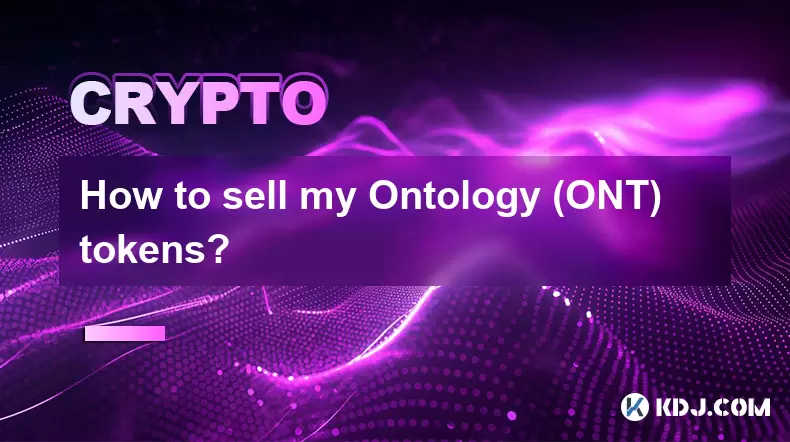
How to sell my Ontology (ONT) tokens?
Aug 09,2025 at 06:08pm
Understanding Ontology (ONT) and Its Trading EcosystemBefore selling your Ontology (ONT) tokens, it's essential to understand the nature of the crypto...

How to purchase Aragon (ANT)?
Aug 09,2025 at 11:56pm
Understanding Aragon (ANT) and Its PurposeAragon (ANT) is a decentralized governance token that powers the Aragon Network, a platform built on the Eth...

Where can I buy UMA (UMA)?
Aug 07,2025 at 06:42pm
Understanding UMA and Its Role in Decentralized FinanceUMA (Universal Market Access) is an Ethereum-based decentralized finance (DeFi) protocol design...

How to buy Storj (STORJ) tokens?
Aug 09,2025 at 07:28am
Understanding Storj (STORJ) and Its Role in Decentralized StorageStorj is a decentralized cloud storage platform that leverages blockchain technology ...

What is the best app to buy Nano (NANO)?
Aug 09,2025 at 03:35am
Understanding Nano (NANO) and Its Unique FeaturesNano is a feeless, instant cryptocurrency designed for fast peer-to-peer transactions. Unlike many ot...

Where can I purchase Siacoin (SC)?
Aug 08,2025 at 11:14am
Understanding Siacoin (SC) and Its Role in the Sia NetworkSiacoin (SC) is the native cryptocurrency of the Sia decentralized cloud storage platform, a...

How to sell my Ontology (ONT) tokens?
Aug 09,2025 at 06:08pm
Understanding Ontology (ONT) and Its Trading EcosystemBefore selling your Ontology (ONT) tokens, it's essential to understand the nature of the crypto...
See all articles





















